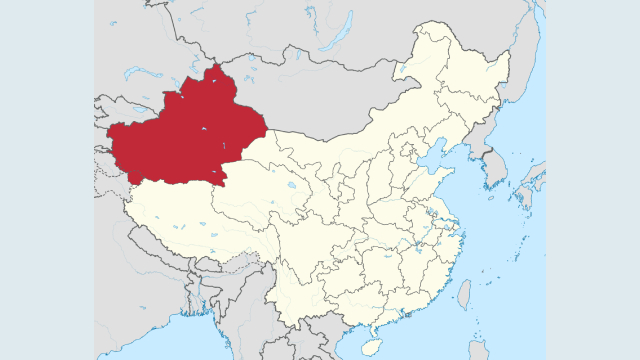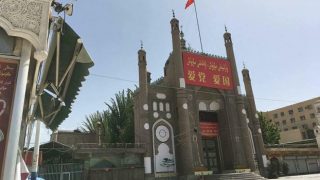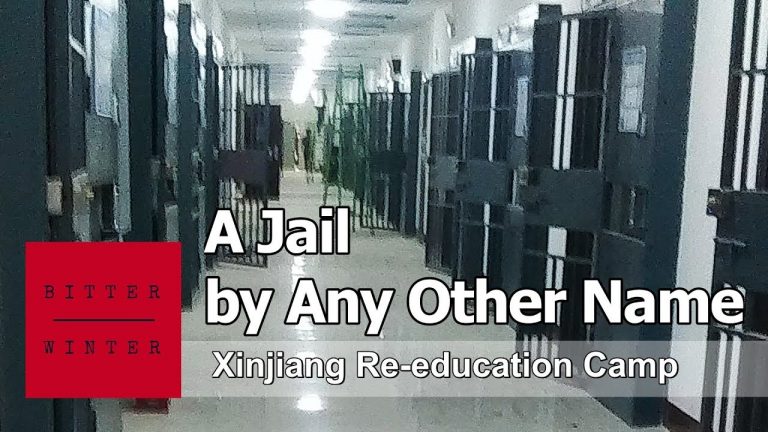
The fate of several missing Uyghur academics in northwest China’s Xinjiang Uyghur Autonomous Region (XUAR) remains a closely guarded secret, which members of the Uyghur exile community say makes “clear” that they have been detained in the region’s vast network of internment camps.
Reporting by RFA’s Uyghur Service and other media outlets has revealed that numerous professors from major research and teaching institutions in the XUAR have disappeared since authorities began placing up to 1.8 million Uyghurs and other Muslim minorities accused of harboring “strong religious views” and “politically incorrect” ideas in internment camps since April 2017.
RFA recently received information from a source who said that Abdulla Abbas, an ethnic Tajik professor with the Institute for Life Sciences and Technology at Xinjiang University in the XUAR capital Urumqi, had died shortly after his release from a camp.
His family members remain under constant surveillance by police, said the source, who spoke on condition of anonymity, fearing reprisals by the authorities.
RFA contacted several employees from different units at Xinjiang University, but none was willing to answer questions related to Abbas, said that the topic was “too sensitive to answer,” or responded by saying that they did not know.
A Han Chinese employee at the institute said she believed Abbas was retired, but “I don’t know about this situation,” although a second Han employee confirmed that the professor had “retired last year.”
A third Han employee simply said, “I’m not going to answer these sensitive questions of yours over the phone.”
RFA also spoke with a Uyghur employee at the Xinjiang University Archives Department who initially said he could answer questions about professors who had been detained at his school, including Abbas and four others, named Batur Eysa, Nurbiye Yadikar, Nebijan Hebibullah, and Asiye Memetsalih, but ultimately said he did not know anything about their cases.
“I don’t know,” he said, when asked when Abbas had stopped working, despite acknowledging that his office is next door to that of the professor.
He said that he had no information about how many professors from the school had been detained, and that other employees also would not know about any of the cases.
“Why are you calling and asking us this,” he questioned, before suggesting that the reporter “come and ask us in person” and hanging up the phone.
Another Uyghur archives employee said he had been “following all the news on this closely,” when asked about who had been detained, and that he had “seen the names of several people from Xinjiang University,” suggesting that an official list had been published.
“There’s a Tajik man named Zemir Zeytulla—his name is there, I’ve seen it,” he said, adding that “other people’s names are there too.”
However, the employee said he “heard there’s no information about them.”
RFA also spoke with a Han employee with the Xinjiang University Teaching Administration Unit, who refused to discuss how many instructors from his department had been detained.
“The question you’re asking is sensitive and cannot be answered on the phone,” he said, adding that “you would need to talk to the police.”
“I have to get off the phone soon and so I can’t talk about this. I have to get to work.”
Kumul instructor
The report of Abbas’s death and efforts by RFA to confirm the detentions of the Xinjiang University professors came amid information recently shared on social media by the Uyghur diaspora that a missing literature instructor and calligrapher from the XUAR’s Kumul (Hami) prefecture named Memet Eli had been detained on March 22, 2019.
Eli, an instructor at the Kumul Normal Institute who graduated with a degree in literature from Xinjiang University in 1987 and also served as an instructor of calligraphy at the institute’s Experimental High School, had been taken in for questioning by authorities early last year, a source with knowledge of the situation, told RFA.
RFA spoke with a Han Chinese employee at the Kumul Normal Institute who confirmed that Eli “isn’t here,” although she clarified by said “we don’t have an instructor named Memet Eli.”
When asked whether Eli had been released from a camp, the employee said “I’m not going to give you an answer to this question,” and suggested the reporter “come here in person and talk to the [Communist] Party office, not call us on the phone.”
“Since we’re on the phone, I can’t tell anything about your identity, right?”
A Uyghur employee of the institute’s Office of Party and Government Affairs acknowledged that Eli “hasn’t come [back]” to work, but said he knew nothing of whether he had been let out of a camp, before hanging up the phone.
A Han Chinese employee of the Kumul City Education Bureau said only that she “can’t share any information with you” and referred questions to her superiors.
But a second Han employee at the bureau said she would “clarify” which camp Eli is being held in “by looking at some documents.”
After looking over her records, she told RFA that the instructor’s case “has to do with social stability.”
“I’m sorry, I can’t talk about it with you,” she added.
‘Their life will be at risk’
Authorities in the XUAR are believed to have jailed or detained hundreds of Uyghur academics and other influential members of the ethnic group in recent years.
While Beijing initially denied the existence of the region’s internment camps, China last year changed tack and began describing the facilities as “boarding schools” that provide vocational training for Uyghurs, discourage radicalization, and help protect the country from terrorism.
But reporting by RFA’s Uyghur Service and other media outlets suggest that those in the camps are detained against their will and subjected to political indoctrination, routinely face rough treatment at the hands of their overseers, and endure poor diets and unhygienic conditions in the often overcrowded facilities.
While RFA was unable to discern any new information about Eli or the Xinjiang University professors, the near-blanket refusal by sources in the XUAR to answer questions suggests that the fates of members of the region’s intellectual elite are closely guarded as state secrets, and that both Hans and Uyghurs live in an environment of fear that requires constant monitoring and censoring of their own speech.
Dolkun Isa, the president of the Munich-based World Uyghur Congress (WUC) exile group, told RFA such responses make it “clear that these Uyghur intellectuals have been detained” in internment camps in the region.
“That is why the Chinese police don’t tell you anything about their whereabouts when asked,” he said.
“If they tell you their whereabouts—including cases of detention and death in the camps—they know their life will be at risk.”
Isa noted that if the intellectuals had not been detained, “there would be no reason for the Chinese authorities to deny knowledge of or lie about their whereabouts.”
“Also, they have been warned by their superiors not to answer any inquiries regarding Uyghur detentions, or face the consequences of revealing state secrets.”
Reported Shohret Hoshur for RFA’s Uyghur Serivice. Translated by Elise Anderson. Written in English by Joshua Lipes.
Source: Copyright © 1998-2016, RFA. Used with the permission of Radio Free Asia, 2025 M St. NW, Suite 300, Washington DC 20036. https://www.rfa.org.



